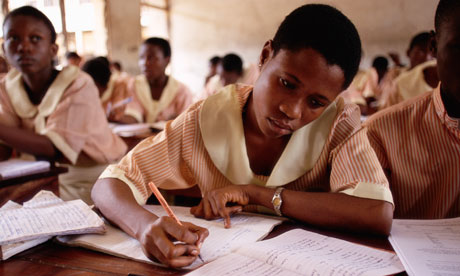Nigeria Adds Mandarin-Chinese to Senior Secondary School Curriculum

Nigeria’s Federal Government has officially adopted Mandarin Chinese as an approved foreign language in the Senior Secondary School curriculum, thereby embedding the language in the Country’s formal education system.
The move, announced by Dr. Danlami Hayyo, Secretary of the Federal Capital Territory (FCT) Administration, is part of expanding educational and diplomatic engagements with China.
A Stepping Stone in Education Reform
During the inauguration of the Chinese Corner at Government Secondary School, Tudun Wada, Abuja, Dr. Hayyo revealed that the recent curriculum review has incorporated Mandarin among the international language options for senior secondary students.
This decision marks a shift in educational policy, aimed at preparing students for broader global opportunities.
According to Dr. Hayyo, FCT had piloted the teaching of Mandarin in selected schools prior to the federal endorsement.
He emphasized that Mandarin, with over 1.4 billion native and second-language speakers around the world, is increasingly significant in spheres such as trade, diplomacy, tourism, and international education.
Building Cultural Bridges: ‘Chinese Corners’
The new “Chinese Corner” in Tudun Wada is the 14th such installation in schools across the FCT. These “corners” serve as cultural and linguistic hubs designed to foster interest in Chinese language and culture among Nigerian students.
To support the rollout, several Nigerian teachers have already completed training programmes in China.
This has provided early momentum for the programme, giving schools in Abuja a head start in integrating Mandarin instruction.
Speaking at the commissioning, Chinese Counsellor Yang Jianxing described the initiative as more than just language transfer: it’s a bridge between cultures.
He said the corners have grown into popular centres where young people in Nigeria connect with Chinese culture and values.
Support, Benefits, and Critiques
Advocates of the policy argue that proficiency in Mandarin will give Nigerian students a competitive edge in global commerce, diplomacy, and education. Such skills, they say, are becoming indispensable in an increasingly interconnected world.
They also highlight that the programme has opened pathways for scholarships and student exchange opportunities with China.
The involvement of the China Civil Engineering Construction Corporation (CCECC) — the largest Chinese construction firm in Nigeria — in supporting the corners underscores the role of corporate social responsibility in the initiative.
However, there are dissenting voices. Critics warn that Nigeria should be cautious about over-dependence on China, particularly given its status as a major lender and investor in the country.
Some believe the government should invest more heavily in strengthening indigenous languages and improving the overall educational infrastructure before expanding foreign language programmes.
With Mandarin now officially part of the senior secondary school curriculum, the next steps will include scaling up teacher training, ensuring availability of teaching materials, and evaluating students’ performance in the new language.
How well these components are managed will determine whether the initiative becomes a transformative tool in Nigeria’s education system or merely another policy with limited impact.
As this policy takes root, it sharpens attention on how education is being used as a field of soft diplomacy and cultural exchange.
The broader conversation—balancing foreign languages with local heritage, and international opportunity with domestic capacity-building—will likely intensify.



